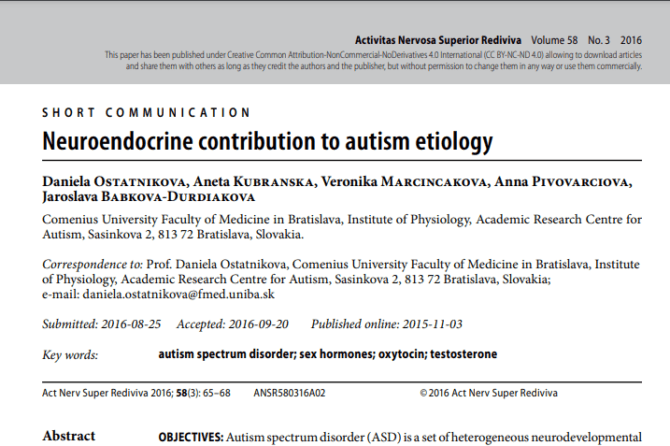
AUTHORS: Ostatníková, D., Kubranská, A., Marcinčáková Husárová, V., Pivovarčiová, A., Babková, J.
ABSTRACT: Objectives: Autism spectrum disorder (ASD) is a set of heterogeneous neurodevelopmental conditions characterized by early-onset difficulties in social communication and unusually restricted, repetitive behavior and interests. One of the main features of autism is the unequal sex distribution, with higher prevalence in boys. There is evidence that in critical prenatal period testosterone and its metabolites play crucial role in masculinization of brain structions with the consequences on cognitive and behavioral style. In general human population males are more systemized while females are more empathized. According to the hypermale brain theory the behaviors seen in autism are exaggerations of typical sex differences and therefore exposure to high levels of prenatal testosterone might be a risk factor for autism. Oxytocin as a neuropeptide affecting social behavior is considered a prosocial hormone and might be protective in autism development. The aim of this study was to reveal differences in plasma levels of oxytocin between autistic and healthy populations in Slovakia.
Methods: ASD children were diagnosed by ADOS and ADI-R diagnostic tools, only boys were included in this study.
Results: Oxytocin levels were lower in the prepubertal and also in the pubertal boys with ASD, while testosterone levels were higher only in the prepubertal boys with ASD when compared with boys from general population.
Conclusion: Our work brought contribution to the investigation on the influence of neuroendocrine milieu to ASD phenotype.
Activitas Nervosa Superior Rediviva. – Vol. 58, No. 3 (2016), s. 65-68. – ISSN (print) 1337-933X


